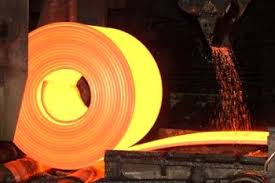
MSC’s energy consumption is lower than global average

Javad Nili made the comment in an interview with Steel Newsletter and said the company’s Pelletizing Unit has set an example for global firms when it comes to energy consumption.
He referred to the company’s measures involving optimal use of energy in the production process and application of energy optimization to production of data-x-items with higher added value. “The Iron-Making Unit uses gas to produce sponge iron. In fact, the process to turn pellets into sponge iron accounts for more than 65 percent of the gas that comes into the company. Less than 20 percent of the incoming gas is used by the MSC Power Plant to generate electricity for internal use.”
Nili further said the electricity generated by MSC Power Plant accounts for over 25 percent of the electricity Mobarakeh Steel Company uses in the production process. “The remainder is provided by the national grid. According to the electricity consumption diagrams, the Steelmaking Unit and the electric arc furnaces use the lion’s share of the company’s electricity.”
A comparison of energy consumption at different units and plants at MSC with other steelmakers whose performance is between 50 and 70percent of the world’s top steelmakers shows that MSC’s energy consumption is ideal both nationally and internationally, he said. “In pelletizing, the national standard for energy consumption is 47.1 gigajoules per ton, while the global average is 7.1 gigajoules per ton. But in Mobarakeh Steel Company the average stands at 92.0 gigajoules per ton. This shows that MSC’s Pelletizing Unit has set an energy consumption example for others to follow.”
Nili then touched upon the company’s environmental achievements and said implementation in the power plant of a project on the heat recovery steam generator (HRSG) has resulted in the registration of the project as a Clean Development Mechanism (CDM) at the United Nations Framework Convention on Climate Change on June 21, 2012.
Mobarakeh Steel Company has taken valuable steps toward maximal reduction of water consumption and protection of the environment by investing in a project designed to develop a network of collecting, treating and recycling wastewater of nine towns in Mobarakeh and Lenjan districts in Isfahan Province, he added.
He went on to say, “MSC’s special use of industrial water stood at 3.36 cubic meters per ton of crude steel production between March 21and July 22, 2018. Reuse of the water coming out of the wastewater treatment facility helped MSC produce 5.423 million tons of crude steel by January 20, 2019 and consume 2.75 cubic meters of [industrial] water per ton of slabs produced. The company’s breakthrough is now a role model in the world.”


Trump weighs using $2 billion in CHIPS Act funding for critical minerals

Codelco cuts 2025 copper forecast after El Teniente mine collapse

Electra converts debt, launches $30M raise to jumpstart stalled cobalt refinery

Barrick’s Reko Diq in line for $410M ADB backing

Abcourt readies Sleeping Giant mill to pour first gold since 2014

Nevada army depot to serve as base for first US strategic minerals stockpile

SQM boosts lithium supply plans as prices flick higher

Viridis unveils 200Mt initial reserve for Brazil rare earth project

Tailings could meet much of US critical mineral demand – study

Kyrgyzstan kicks off underground gold mining at Kumtor

Kyrgyzstan kicks off underground gold mining at Kumtor

KoBold Metals granted lithium exploration rights in Congo

Freeport Indonesia to wrap up Gresik plant repairs by early September

Energy Fuels soars on Vulcan Elements partnership

Northern Dynasty sticks to proposal in battle to lift Pebble mine veto

Giustra-backed mining firm teams up with informal miners in Colombia

Critical Metals signs agreement to supply rare earth to US government-funded facility

China extends rare earth controls to imported material

Galan Lithium proceeds with $13M financing for Argentina project

Kyrgyzstan kicks off underground gold mining at Kumtor

Freeport Indonesia to wrap up Gresik plant repairs by early September

Energy Fuels soars on Vulcan Elements partnership

Northern Dynasty sticks to proposal in battle to lift Pebble mine veto

Giustra-backed mining firm teams up with informal miners in Colombia

Critical Metals signs agreement to supply rare earth to US government-funded facility

China extends rare earth controls to imported material

Galan Lithium proceeds with $13M financing for Argentina project

Silver price touches $39 as market weighs rate cut outlook

















